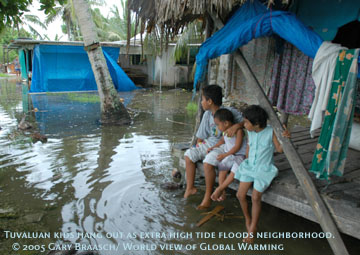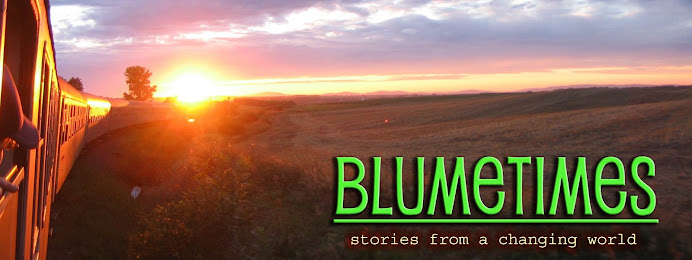 My latest VPR commentary. You can listen to it here.
My latest VPR commentary. You can listen to it here.There were dancers, singers, and musicians all decked out in traditional woven costumes made by their families. The program said that the beauty and intricacy of the woven designs was indicative of how much the performers were loved by their families.
The performers themselves were like shimmering coppery earth spirits, dancing and singing a pounding, full-throated love lament for the tight communities and deep, ancient cultures being lost to the inexorably advancing tides.
One of the islands represented, Tuvalu, is less than a mile wide and its highest point is about 6' above sea level. Climate change has progressed so far that their beaches are eroding and their crops are being poisoned by saltwater. Someday, in the not-too-distant future, there won't be a Tuvalu anymore. And they all know it.
Chatting with some of the performers afterwards, one of them told me that a little atoll where his grandfather used to live is already gone. Another young man said, "We are warriors. No matter how high the ocean gets, we will stay. We will die for our country."
I hugged him and made a big point of saying that I knew all about Tuvalu, and so did a lot of my friends, and our small place in the world was thinking about their small place in the world and doing our best to try and address this... But he stopped me and said, "It's not just us. It's everybody."
Of course he was right. And I was a little embarrassed. Because, despite being a die-hard climate activist, I somehow managed to forget, just for a moment, that it's all of us.
Everyone on the planet is being faced with some form of rising tide, and everything we know is going to be affected.
However, grim as the scientific predictions are, things often come along which still give me hope that we'll get our climatic act together. As it happens, I also just went to the annual conference of the Vermont Energy and Climate Action Network. It was attended by a huge cross section of people from all over the state: from conservation educators to town energy committee members. There were activists who'd gotten arrested protesting the Keystone pipeline and business leaders developing solar, wind, and geothermal projects. There were selectboardpeople, state representatives, agency secretaries, and even Bernie Sanders, who gave one of his rip-roaring, no-holds-barred speeches full of commitment, passion, and truth.
They were there to meet, to connect, to share ideas, and to continue the ongoing process of hashing through the nitty-gritty details of how we help our collective community enter a post-carbon age.
I came away reminded that in the face of all the rising tides, I am grateful and honored to live on my own little island of sanity and citizenship. I came away glad to live in Vermont.









